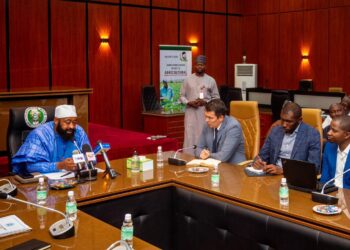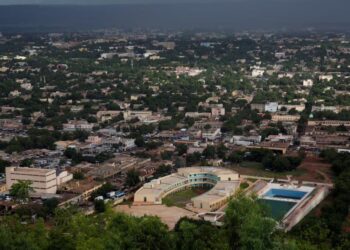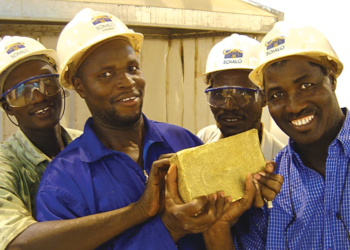The Bariba people, also known as Baruba, Borgu, Borgawa, or Wasangari, are an ethnic group with a rich cultural legacy and strong ties to the ancient Borgu Kingdom. This kingdom, a mighty empire that stretched throughout modern-day Nigeria, Benin, and Niger, is crucial to Baruba’s history and identity.
Today, the Bariba people are the principal inhabitants of Borgou and Alibori Departments in Benin. In Nigeria, they are found spread between western Kwara State and the Borgu section of Niger State.
As the fourth largest ethnic group, the Bariba comprise several subgroups and make up about one-tenth of Benin’s population. They inhabit the northeast, especially towns such as Nikki and Kandi that were once Bariba kingdoms.
Historical accounts state that the Bariba travelled southward from the Sahel region in the early years of the Common Era due to a need for fertile land and good conditions to support their agrarian lifestyle. Kisra, a historical or mythical character who is said to have brought the Bariba people to the bountiful areas of West Africa, is an important part of their identity, and stories that are interlaced with themes of migration, conquest, and settlement, all of which represent the Bariba’s persistence and flexibility.
Going by an article on the 101 Last Tribes:
“According to some versions of their history, the Wasangari first settled in the region of Nikki-Wenu around 1480, it having been occupied from 1350 by the Baatonu natives. Coming from the East, they initially settled in Bussa in what is now Nigeria, where Kisra, the legendary Wasangari horseman from Persia, had formed an alliance with Mansa. Doro left Bussa for Nikki-Wenu with his groom Sero, the son of Kisra, who entrusted Mansa Doro with the education of Sero. Before leaving the region again to join Kisra, Mansa Doro nominated his protégé Sero as the new chief. Decked out in hunting attire, the groom was established by the populations of Nikki-Wenu as Sounon Sero, King of Nikki.
“Sabi Sime, the youngest son of Sounon Sero, later became Sime Dobidia, and through marriages with the native clans Baatonu, Boko and Hausa, founded the dynasties of the Empire of Nikki. His sons, endowed with the royal emblems of trumpets and white spurs, took control of villages of their respective mothers. Those parental ties were the basis of the political structure established by the Wasangari.”
The Bariba gradually established themselves in the Borgu Kingdom, with noteworthy centres such as Nikki (in Benin) and New Bussa (in Nigeria) functioning as important political and cultural hubs. Through decades of interaction with nearby ethnic groups such as the Yoruba, Nupe, and Fulani, the Bariba people preserved their particular cultural identity while absorbing influences that enrich their traditions. Their historical ties to nearby Benin and Togo further emphasise their significance as a link between various West African cultures.
At the end of the 18th century, the Bariba became independent from the Yoruba of Oyo and established multiple kingdoms in the Borgou region. The French colonised Benin (then Dahomey) at the end of the nineteenth century and imposed an Anglo-French artificial border, thereby ending Bariba trade in the region.
The Bariba language, also known as Batonu or Bariba, is essential to the group’s identity. It is a member of the Nilo-Saharan language family and is commonly spoken in Nigeria, Benin, Togo, and Burkina Faso. The language connects Bariba groups across borders, preserving oral histories, folktales, and melodies passed down through generations.
The Bariba governance system was based on traditional leadership, with monarchs and elders playing important roles in maintaining cultural values and social order. Architectural methods incorporated clay and palm fronds, emphasising their link to the soil and social living.
-
The Wassangari (Nobles/Aristocracy): This is the highest caste, composed of the ruling aristocracy and horsemen, believed to have originated from Bussa. They hold political power, with the emperor (Sinaboko) and queen mother (Gnon Kogui) belonging to this group. The various dynasties of the Nikki Empire, a prominent Bariba kingdom, were historically led by Wassangari sub-clans.
-
The Bariba Natives (Baatonu): Also known as the “pure people”, this caste comprises the indigenous farming and artisan populations that pre-existed the Wassangari. While they are commoners, they hold significant roles, including “chiefs of land” and high-ranking ministerial positions within the royal council. Griots (oral historians/musicians), blacksmiths, and other artisans also belong to this group.
-
The Gando: This is a distinct and somewhat marginalised caste. According to Bariba custom, children born abnormally (e.g., breech birth, upper teeth first) are considered “children of misfortune” and are entrusted to the Fulbe for raising. These children, regardless of their original family’s status, form the Gando caste, live in separate neighbourhoods, and traditionally marry only among themselves. They are responsible for supplying the royal grain court.
-
The Fulbe (Fula): This caste consists of semi-nomadic pastoralists who specialise in livestock farming. They have a symbiotic relationship with the Bariba, who allow them to graze their animals on fallow or harvested land in exchange for meat and milk. The Fulbe also have representation at the courts of Bariba chiefs, who offer them protection against cattle raiding.
-
Foreigners (e.g., Hausa and Dendi): At the bottom of the traditional hierarchy are foreign groups, primarily Muslims from northern Nigeria (Hausa) and Dendi, who are mainly involved in trade and commerce.
The Borgu Kingdom’s strategic location enabled cultural and economic interactions with neighbouring regions, which influenced Bariba traditions and practices. One of their noted festivals is the Dokoru and Gani (of which horse riding is a prominent element).
The Gani Festival, held at the commencement of the farming season, is a time of prayers, singing, dancing, and rituals to seek blessings for a good crop. It demonstrates the Bariba people’s strong connection to the land and agricultural cycles. The Dokoru Festival commemorates ancestors and fosters community relationships. Traditional dances, drumming, and spiritual rites are key to the celebration, expressing the Bariba people’s respect for their heritage and spirituality.
Agriculture is the dominant occupation for the Bariba. They grow corn, sorghum, rice, cotton, cassava (tapioca), yams, beans, palm oil, peanuts and some poultry and livestock. Religion plays an important role in the Bariba tribe, and they are primarily Islamic. However, a number of Bariba communities have their own indigenous beliefs.
Economically, towns like Chikanda play an important role in cross-border trade, particularly oil importation and exportation, which adds to the region’s expanding relevance. These activities, as well as the Bariba’s agricultural and cultural wealth, highlight their significance in West Africa’s socioeconomic environment.
The Bariba society features a hierarchical structure, which traditionally comprises several key divisions, such as:



























































